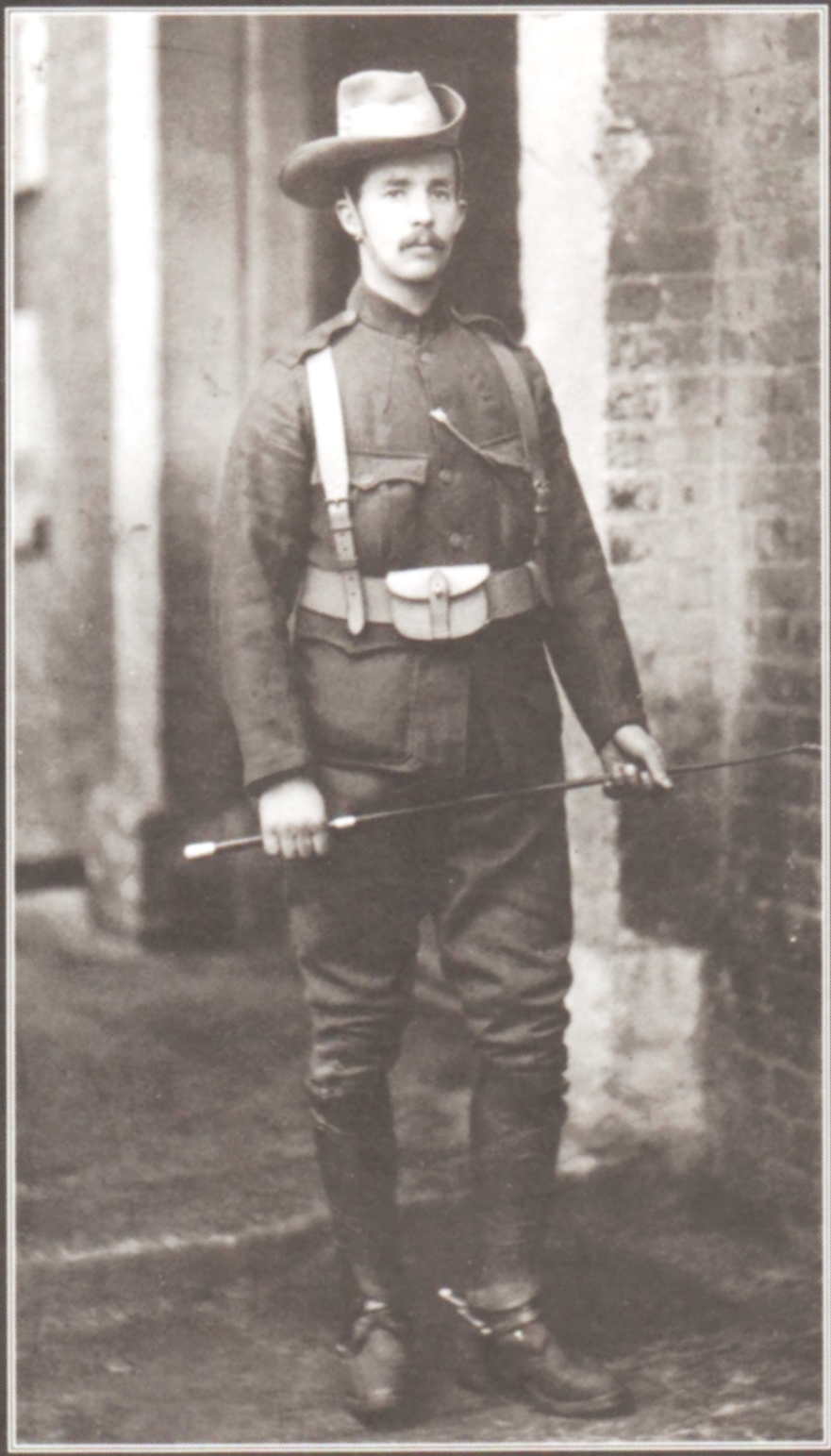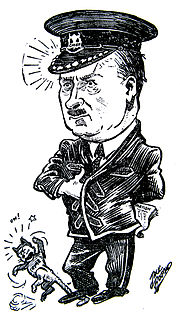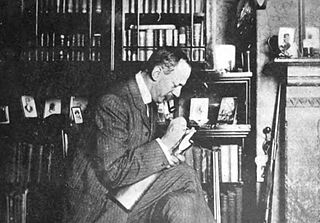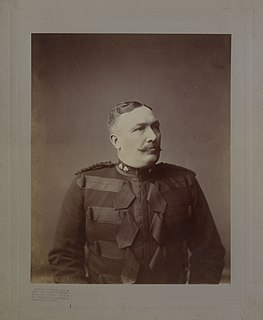 W
WRewi Alley was a New Zealand-born writer and political activist. A member of the Communist Party of China, he dedicated 60 years of his life to the cause and was a key figure in the establishment of Chinese Industrial Cooperatives and technical training schools, including the Peili Vocational Institute. Alley was a prolific writer about 20th century China, and especially the communist revolution. He also translated numerous Chinese poems.
 W
WLeopold Charles Maurice Stennett Amery,, usually known as Leo Amery or L. S. Amery, was a British Conservative politician and journalist, noted for his interest in military preparedness, British India and the British Empire and for his opposition to appeasement.
 W
WCaptain Richard Wallace Annand VC, ERD, DL was an English recipient of the Victoria Cross, the highest and most prestigious award for gallantry in the face of the enemy that can be awarded to British and Commonwealth forces.
 W
WRobert Erskine Childers DSC, usually known as Erskine Childers, was a British-born Irish writer, whose works included the influential novel The Riddle of the Sands. He became a supporter of Irish Republicanism and smuggled guns into Ireland in his sailing yacht Asgard. He was executed by the authorities of the nascent Irish Free State during the Irish Civil War. He was the son of British Orientalist scholar Robert Caesar Childers; the cousin of Hugh Childers and Robert Barton; and the father of the fourth President of Ireland, Erskine Hamilton Childers.
 W
WWilliam Thomas Dartnell, VC, also known as Wilbur Taylor Dartnell, was an Australian-born soldier, actor and a recipient of the Victoria Cross, the highest award for gallantry in the face of the enemy that can be awarded to British and Commonwealth forces. Born in Melbourne, he served in the Second Boer War as a teenager and later in the Bambatha Rebellion of 1906. He married, managed his own business and worked as a professional actor before immigrating to South Africa in 1912 or 1913.
 W
WCaptain Harry Willes Darell de Windt was the aide-de-camp to his brother-in-law Charles Brooke, Rajah of Sarawak, and is best known as an explorer and travel writer. His books were published under the name of Harry de Windt.
 W
WSir Arthur Ignatius Conan Doyle was a British writer and medical doctor. He created the character Sherlock Holmes in 1887 for A Study in Scarlet, the first of four novels and fifty-six short stories about Holmes and Dr. Watson. The Sherlock Holmes stories are generally considered milestones in the field of crime fiction.
 W
WColonel Charles Edgar Edgett was the warden of the British Columbia Penitentiary (1929–1931), the Chief Constable of the Vancouver Police Department (1931–1933), an active anticommunist and opponent of organized labour in Vancouver, British Columbia, Canada.
 W
WMajor-General William Wasbrough Foster DSO CMG VD was a noted mountaineer, Conservative Party politician, businessman, and chief constable in British Columbia, Canada, in addition to his distinguished military career.
 W
WSir Henry Rider Haggard was an English writer of adventure fiction set in exotic locations, predominantly Africa, and a pioneer of the lost world literary genre. He was also involved in agricultural reform throughout the British Empire. His stories, situated at the lighter end of Victorian literature, continue to be popular and influential.
 W
WCharles John Cutcliffe Wright Hyne was an English novelist who was also known by the pen name Weatherby Chesney. He is perhaps best remembered as the author of The Lost Continent: The Story of Atlantis. He is also remembered for his Captain Kettle stories and for The Recipe for Diamonds.
 W
WRichard Kearton FZS, FRPS and Cherry Kearton, brothers, were a pair of British naturalists and some of the world's earliest wildlife photographers. They developed innovative methods to photograph animals in the wild and in 1895 published the first natural history book to be entirely illustrated by wild photographs. Richard was a made a Fellow of the Zoological Society of London and Royal Photographic Society. Cherry later became a wildlife and news filmmaker, and friend to Theodore Roosevelt. The Royal Geographical Society created the Cherry Kearton Medal and Award in his honour.
 W
WWilliam Tufnell Le Queux was an Anglo-French journalist and writer. He was also a diplomat, a traveller, a flying buff who officiated at the first British air meeting at Doncaster in 1909, and a wireless pioneer who broadcast music from his own station long before radio was generally available; his claims regarding his own abilities and exploits, however, were usually exaggerated. His best-known works are the anti-French and anti-Russian invasion fantasy The Great War in England in 1897 (1894) and the anti-German invasion fantasy The Invasion of 1910 (1906), the latter becoming a bestseller.
 W
WHugh Cecil Lowther, 5th Earl of Lonsdale, was an English peer and sportsman.
 W
WSir John Martin-Harvey, known before his knighthood in 1921 as John Martin Harvey, was an English stage actor.
 W
WSir Patrick Alfred Caldwell-Moore was an English amateur astronomer who attained prominence in that field as a writer, researcher, radio commentator and television presenter.
 W
WAdmiral of the Fleet Louis Francis Albert Victor Nicholas Mountbatten, 1st Earl Mountbatten of Burma, was a British Royal Navy officer and statesman, an uncle of Prince Philip, Duke of Edinburgh, and second cousin once removed of Queen Elizabeth II. During the Second World War, he was Supreme Allied Commander, South East Asia Command (1943–1946). He was the last Viceroy of India (1947) and the first governor-general of independent India (1947–1948).
 W
WSamuel George Pearse, VC, MM was an Australian recipient of the Victoria Cross, the highest award for gallantry in the face of the enemy that can be awarded to British and Commonwealth forces. Serving in the Australian Imperial Force during the First World War, he saw action during the final weeks of the Gallipoli Campaign in 1915 and later on the Western Front from 1916 to 1918. Following the Armistice he fought as part of the North Russia Relief Force with the British Army during the North Russia Campaign in 1919. He was killed after charging a machine gun post during an action at Emtsa, in North Russia, for which he was posthumously awarded the Victoria Cross.
 W
WErnest George Pretyman,, known as E. G. Pretyman, was a British soldier and Conservative Party politician.
 W
WSir Charles George Douglas Roberts was a Canadian poet and prose writer. He was one of the first Canadian authors to be internationally known. He published various works on Canadian exploration and natural history, verse, travel books, and fiction." He continued to be a well-known "man of letters" until his death.
 W
WFrederick Courteney Selous, DSO, was a British explorer, officer, professional hunter, and conservationist, famous for his exploits in Southeast Africa. His real-life adventures inspired Sir Henry Rider Haggard to create the fictional Allan Quatermain character. Selous was also a friend of Theodore Roosevelt, Cecil Rhodes and Frederick Russell Burnham. He was pre-eminent within a select group of big game hunters that included Abel Chapman and Arthur Henry Neumann. He was the older brother of ornithologist and writer Edmund Selous.
 W
WSir Charles Aubrey Smith, CBE was an English Test cricketer who became a stage and film actor, acquiring a niche as the officer-and-gentleman type, as in the first sound version of The Prisoner of Zenda (1937). In Hollywood, he organised British actors into a cricket team, much intriguing local spectators.
 W
WField Marshal Jan Christian Smuts was a South African statesman, military leader, and philosopher. In addition to holding various military and cabinet posts, he served as prime minister of the Union of South Africa from 1919 to 1924 and 1939 to 1948.
 W
WMajor General Sir Samuel Benfield Steele was a distinguished Canadian soldier and police official. He was an officer of the North-West Mounted Police, most famously as head of the Yukon detachment during the Klondike Gold Rush, and commanding officer of Strathcona's Horse during the Boer War.
 W
WMarshal of the Royal Air Force Arthur William Tedder, 1st Baron Tedder, was a senior Royal Air Force commander. He was a pilot and squadron commander in the Royal Flying Corps in the First World War and he went on to serve as a senior officer in the Royal Air Force during the inter-war years when he served in Turkey, Great Britain and the Far East.
 W
WRichard Horatio Edgar Wallace was an English writer.